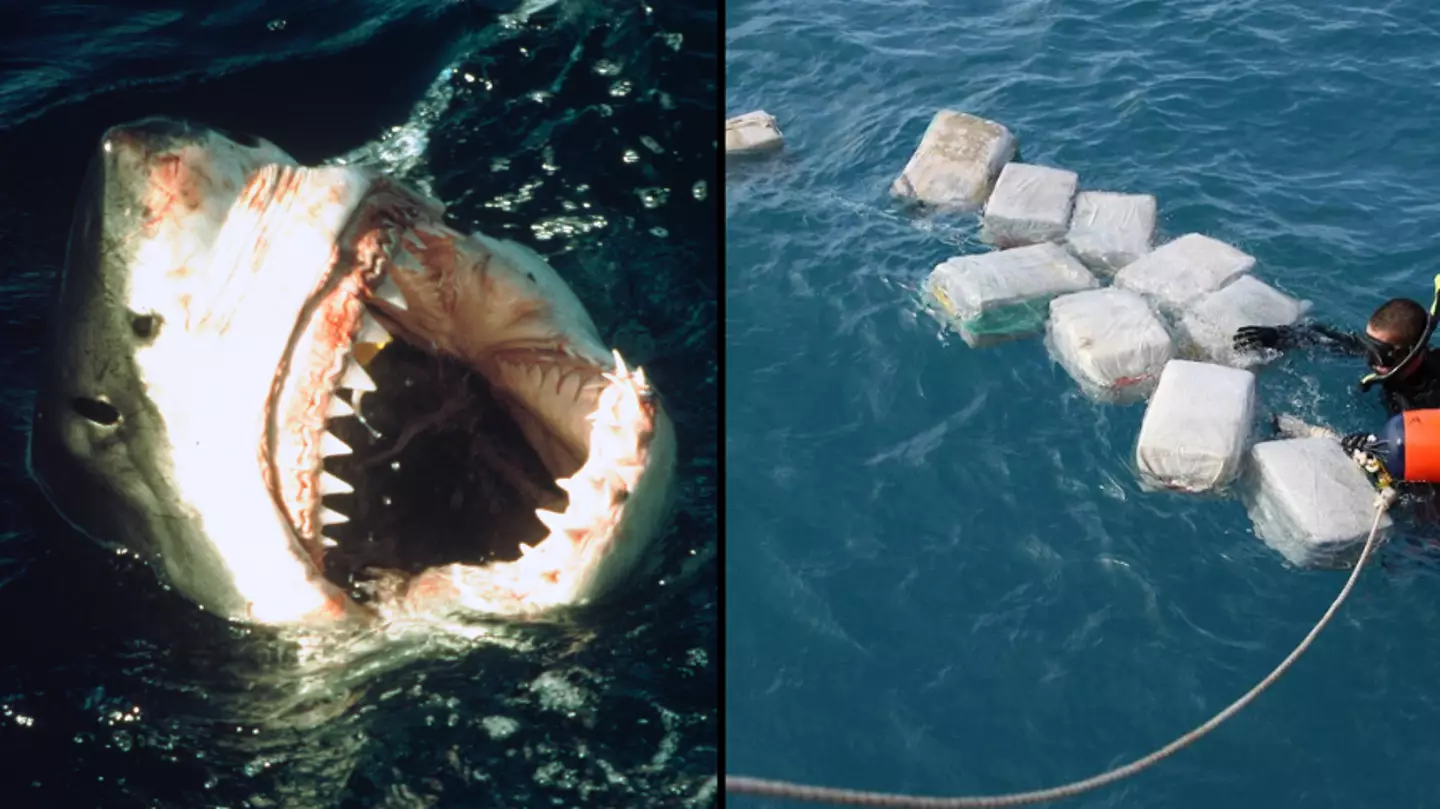
There are fears thousands of sharks off the Florida coast may have ingested large amounts of cocaine.
No, this is not the plot to a Cocaine Bear sequel.
Marine biologist Tom Hird is investigating whether the ocean predators have eaten cocaine from bales left in the water by drug smugglers attempting to get their product into the US.
His research will be featured in new TV series called Cocaine Sharks, which will premiere this week as part of Discovery Channel's Shark Week.
Advert
"The deeper story here is the way that chemicals, pharmaceuticals and illicit drugs are entering our waterways — entering our oceans — and what effect that they then could go on to have on these delicate ocean ecosystems," Hird, known as 'The Blowfish', told Live Science.
Large bricks of cocaine often wash up on Florida beaches after being dumped in the ocean to be collected by drug smugglers.
In the docu-series, Hird sets off to investigate areas where fisherman say they've seen sharks ingesting the cocaine and going wild.
During one of the dives, Hird witnesses a hammerhead shark 'acting strangely'. The hammerhead, which usually avoids humans, swims straight towards him and looks like it is swimming at an odd angle.
In another scene, at 60 feet below the surface, a sandbar shark is seen swimming in tight circles, appearing fixated on an object that is not there.
In one experiment, Hird and Florida environmental scientist Tracy Fanara recreate packages similar in size and appearance to real cocaine bales and drop them into the ocean. They witness sharks swimming straight over to the bales and taking large bites out of them.
In another experiment, they make up a bale filled with highly-concentrated fish powder, which would give the sharks a similar dopamine hit to the cocaine.
They absolutely loved it.
"I think we have got a potential scenario of what it may look like if you gave sharks cocaine," Hird says in the documentary.
"We gave them what I think is the next best thing. [It] set [their] brains aflame. It was crazy."
Yep, they were off their.... hammerheads.
Hird said the experiments don't prove the sharks have been ingesting cocaine, or what impact the drug would have on them, but they were a good starting point to conduct more research.
"We have no idea what [cocaine] could do to the shark," he told Live Science."So we can't even say well this is a baseline and go from here."
Topics: News, World News, Sharks, Animals
